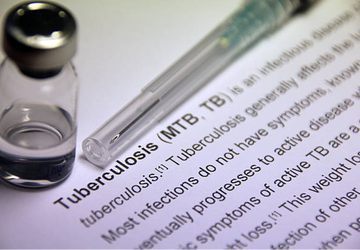beauty
Delving into the realm of diabetes, this article serves as an essential diabetes guide for understanding the different types of diabetes and the innovative diabetes treatments available today.
Decoding the Types of Diabetes
Diabetes, known for its high blood sugar levels, is broadly categorized into various types of diabetes. Each type demands a unique approach, as outlined in this comprehensive diabetes guide.
The Challenge of Type 1 Diabetes

Within the types of diabetes, Type 1 is an autoimmune condition requiring lifelong insulin dependence, a critical aspect in any diabetes guide.
Addressing Type 2 Diabetes
Type 2 diabetes, the most prevalent of the types of diabetes, is often linked to lifestyle choices, highlighting the need for lifestyle modification in diabetes treatments.
Gestational Diabetes and Its Implications
As a special category in the types of diabetes, gestational diabetes affects pregnant women and is an important focus in this diabetes guide.
Identifying Symptoms of Diabetes
Recognizing diabetes symptoms early is fundamental for managing all types of diabetes, a key point emphasized in this diabetes guide.
Tailoring Diabetes Treatments
Effective management of diabetes involves exploring various diabetes treatments. This diabetes guide delves into the options available for managing the different types of diabetes.
Nutritional Strategies in Diabetes Management
Diet plays a pivotal role in diabetes treatments, especially in controlling and managing the types of diabetes. It's about making informed food choices, as explained in this diabetes guide.
The Role of Exercise in Diabetes Control
Physical activity is a cornerstone in diabetes treatments, helping to regulate blood sugar levels for all types of diabetes.
Innovations in Diabetes Treatments
The landscape of diabetes treatments is continually evolving, offering hope and new possibilities for those diagnosed with various types of diabetes. This diabetes guide touches upon these advancements.
Proactive Prevention of Diabetes-Related Complications
In managing types of diabetes, prevention of complications is crucial. This aspect forms an integral part of our diabetes guide, emphasizing the importance of comprehensive care in diabetes treatments.
Understanding Diabetes: Beyond Basics
Expanding upon our comprehensive diabetes guide, we delve deeper into the nuances of managing and understanding the various types of diabetes and the evolution of diabetes treatments.
Psychological Aspects of Diabetes Management
Living with diabetes extends beyond physical health. Mental and emotional well-being are crucial in managing all types of diabetes. This aspect of the diabetes guide emphasizes the importance of mental health support and coping strategies as part of effective diabetes treatments.
The Impact of Stress on Diabetes
Stress management plays a significant role in controlling blood sugar levels. High stress can adversely affect blood sugar control, making stress management a key component of diabetes treatments in all types of diabetes.
The Role of Technology in Diabetes Management
Advancements in technology have revolutionized diabetes treatments. This section of the diabetes guide explores how tools like smartphone apps, insulin pumps, and continuous glucose monitoring systems aid in managing different types of diabetes.
The Promise of Telemedicine in Diabetes Care
Telemedicine has emerged as a game-changer in diabetes treatments, offering remote monitoring and consultation, an important evolution in the management of various types of diabetes.
The Importance of Regular Screening and Check-Ups
Regular medical screenings and check-ups are vital in detecting and managing complications associated with different types of diabetes. This diabetes guide underscores the necessity of ongoing medical oversight as part of comprehensive diabetes treatments.
Eye Health in Diabetes Management
Eye health is particularly important for individuals with diabetes. Regular eye exams are crucial in preventing vision-related complications, a key focus in managing all types of diabetes.
The Role of Community and Support Systems

The support of family, friends, and diabetes support groups is invaluable. This diabetes guide emphasizes building a supportive community as an integral part of living with and managing different types of diabetes.
Diabetes Education Programs
Education is power, especially when it comes to managing types of diabetes. This diabetes guide highlights the importance of structured diabetes education programs in empowering patients in their diabetes treatments.
Personalized Diabetes Care Plans
Personalized care plans are essential in managing types of diabetes. This tailored approach, an important aspect of this diabetes guide, ensures that diabetes treatments are aligned with individual needs and lifestyles.
Integrative Medicine in Diabetes Care
Integrative medicine, which combines traditional and alternative therapies, offers a comprehensive approach to managing diabetes. This method considers the whole person – body, mind, and spirit – in the pursuit of optimal health and wellness.
Herbal Remedies and Supplements
While not a substitute for conventional diabetes treatments, certain herbs and supplements may offer supportive benefits. For example, cinnamon, fenugreek, and alpha-lipoic acid have been studied for their potential effects on blood sugar levels.
The Importance of Sleep in Diabetes Management
Adequate sleep is crucial for overall health and particularly important for those with diabetes. Poor sleep can affect blood sugar control and insulin sensitivity, making it an important area of focus.
Addressing Sleep Disorders
Individuals with diabetes are more prone to sleep disorders like sleep apnea. Managing these conditions is vital for maintaining stable blood sugar levels and overall health.
The Role of Mindfulness and Stress Reduction
Mindfulness and stress-reduction techniques can be beneficial in managing diabetes. Practices like meditation, yoga, and tai chi can help reduce stress and improve blood sugar control.
The Mental Health Counseling
Mental health counseling, including cognitive-behavioral therapy, can be an effective part of diabetes management, helping individuals cope with the psychological aspects of living with a chronic condition.
The Impact of Environmental Factors
Environmental factors, like exposure to certain toxins or a lack of access to healthy foods, can influence diabetes management and risk.
Community based health initiatives can play a significant role in improving access to diabetes care and education, particularly in underserved areas.
Conclusion
This diabetes guide offers a thorough exploration of the types of diabetes and the latest diabetes treatments, empowering individuals to manage their condition effectively. With advancements in care and an understanding of different management strategies, those living with diabetes can maintain a quality of life and health.

